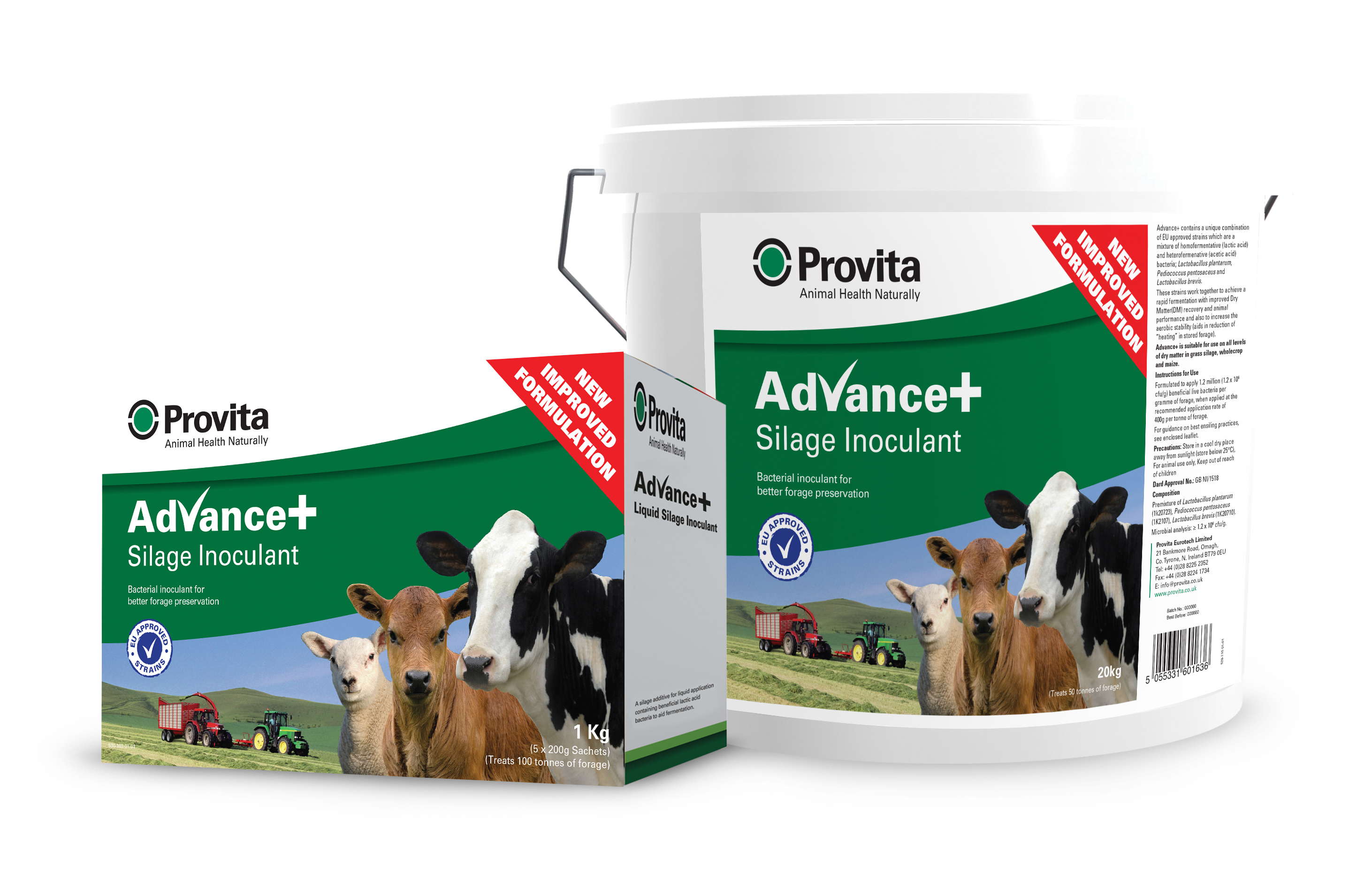Up to 50% of this year’s first cut silage crops have still to be cut across many parts of Northern Ireland, according to Provita’s Tommy Armstrong.
“The very changeable weather of recent weeks is the obvious culprit,” he said.
“The good news is that a return to warmer and drier conditions is predicted during the first few days of next week.
“Most silage swards are now at or beyond the heading stage. As a result, forage quality is on the decline. However the cool weather has been a silver lining on the many clouds, as it has slowed down the heading process. This means quality is not as badly affected as it would have been in a warmer year. As digestibility has declined, farmers and contractors can opt for a 24 hour wilt after cutting to help improve intake. This will serve to bring dry matters up to between 25% and 30%.”
If ground conditions are still soft next week, Armstrong is advising farmers to be careful about the number of field operations used e.g. tedding.
“If wheels sink too low in certain fields or parts of fields, the tines can increase soil contamination, so they should only be used if the ground is firm and even” he said.
“Cutting with a mower conditioner and then rowing up prior to pick up could be another option and should be more effective at raising dry matters, given the weather that is currently forecast for next week.”
“However, higher dry matter silages are harder to stabilise. They therefore must be rolled in layers as they go in. Contractors will be under a lot of pressure next week so it would be worthwhile for farmers to get a second tractor on the pit to constantly roll it as it goes in.
The risk of moulds, yeasts and secondary fermentation at feed out will be higher for drier silages. The use of an EU approved silage inoculant where independent data has shown extended stability, can help counteract this problem. Advance+ demonstrated on average, a doubling of the shelf life of forages at feed out,” he said.
Armstrong pointed out that soil contamination of silage can significantly increase the risk of cattle and sheep succumbing to listeriosis infections.
“Soil contains the bacteria that are responsible for this potentially fatal condition. If a naturally slow fermentation takes place this bacteria can become established in the silage,” he said.
“One way of preventing this from happening is to ensure a faster fermentation by the use an effective silage inoculant, such as Provita’s Advance+ product,” he concluded.
